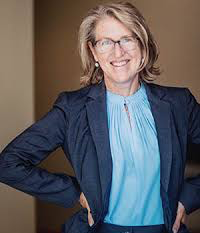
Recently, I had the immense honor of interviewing Dr. Nancy Isenberg. Dr. Isenberg is currently the medical director of the Center for Healthy Aging at the Swedish Neuroscience Institute in Seattle, WA and co-director of Project ECHO, a program which works to scale dementia care and primary care. She has also published numerous neuroscience papers. I sat down with Dr. Isenberg to learn more about her implementation of comprehensive and collaborative memory disorder care and the scientific basis of holistic care:
Erica: How would you define “comprehensive and collaborative care” and its importance in the treatment of memory disorders?
Dr. Isenberg: To me, comprehensive care means that you are considering all aspects of what can help and what can harm. For example, many people take over the counter medications for sleep but have Benadryl, which can cloud thinking in the morning and is associated with an increased risk for dementia. People may not be exercising as much as they could or challenging the mind in a way that can strengthen connections and improve thinking. Collaborative means considering the person, their family, and more broadly, their community. If the care partner’s needs are not being met, then they are not able to help the person living with dementia. Thankfully, there are tools, and programs, and services within communities and within the Center for Healthy Ageing that can help to support not only individuals living with cognitive challenges but also their families. Additionally, heart health is brain health. Wellbeing impacts overall brain capacity. How you sleep affects how you think the next day. Being holistic and comprehensive is key to care.
Erica: During the pandemic, our elderly population has suffered an unprecedented amount of added isolation; how does your work provide social-emotional connections and community for people living with memory loss disorders and why is that support essential?
Dr. Isenberg: It is unfortunate that we picked up the term “social distancing” because that was never intended in the pandemic; it was physical distancing. Loneliness is truly lethal. Our Center for Healthy Ageing provides virtual shared medical appointments for people to connect so that they don’t feel isolated and can support one another to sustain behavior change. There are also many efforts in dementia communities, intergenerational programs, caregiver support networks through the Alzheimer’s Association, and other virtual activities to help people stay socially connected and also safe.
Erica: What do you think are the most significant components of resilience?
Dr. Isenberg: Resilience is the speed with which you recover. There are a lot of different types of resilience: physical resilience, cognitive resilience, psychological resilience, and more. I think that the best way to underscore the components of resilience is to think about the constituents of well being. The most studied are awareness, connection, insight, and purpose. Thankfully, these are skills that we can strengthen and cultivate over our lifespan to improve our resilience and overall wellbeing.
How have early memory-loss programs and lifestyle modifications aided in building resilience against dementia and for healthy aging?
40% of dementia cases are preventable over a lifespan, which we recently found out in 2020. Focusing on modifiable risks in mild cognitive impairment can slow the progression. I often talk about 7 habits of healthy ageing which are the kitchen table wisdom in many regards that involve lifestyle and diet. For example, a heart and brain healthy diet which is plant predominant and sometimes called the “Mind Diet” and exercise, including aerobic exercise and strength training as well as balance and stretching. The science around aerobic exercise is that what is healthy for the heart is healthy for the brain. Sleep is also important; if you have chronic insomnia your risk of dementia is increased, and if you have untreated sleep apnea, the same is true. In terms of a mindset, to have a positive outlook and to address and treat depression as well as cultivating positive emotions, such as awe and gratitude, can be neuroprotective. Additionally, focusing on lifelong learning, we know that people who have a high level of education have something called a cognitive reserve, which means that they can tolerate a greater neuropathological burden and still clinically and functionally do very well. Also, lifelong learning and challenging the mind to learn new things which are fast paced can be very neuroprotective. Lastly, working very closely with a care team to make sure you are adhering to the medications which are helping you and deprescribing those which might be harmful. Preventing falls, staying connected in your community, finding meaning and purpose — these kinds of things are so important.
Erica: Could you discuss the importance of mindfulness and compassion in building brain strength?
Dr. Isenberg: Mindfulness and compassion build brain, mind, and heart strength. In the 21st century, we are constantly bombarded with information, and we were never intended to multitask. In fact, we are very poor at multitasking and on average distracted half of our waking life. When we are distracted, we are less able to remember and less happy. If we are able to cultivate the neural circuitry and skills to be present, we are happier and can remember better. Cultivating these skills through the practice of mindfulness takes practice. There are no bad meditators. Mindfulness is present moment awareness with curiosity and non-judgment. When we are more present, we are more aware of what is, such as the suffering in the world, and we are more able to find the courage to alleviate that suffering, which is what compassion is. We have more courage and develop a greater sense of connection as a result.

